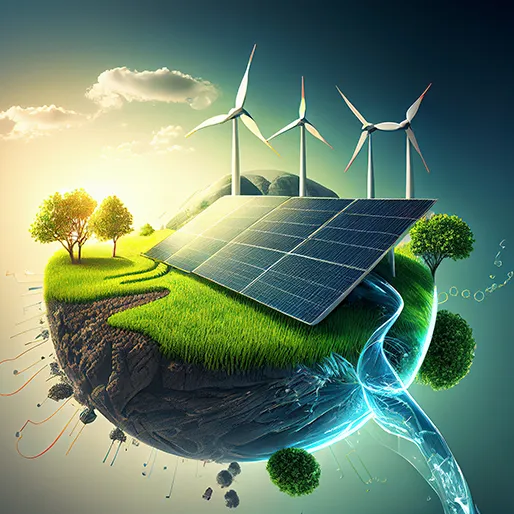In recent years, the water industry has been undergoing a transformation towards more sustainable and environmentally friendly practices. With growing concerns about water scarcity and pollution, there has been a push towards adopting renewable water solutions that can help reduce the industry’s carbon footprint and improve water quality. In this article, we will explore some of the latest advances in renewable water solutions and how they are revolutionizing the water industry.
Advances in Water Treatment Technologies
One of the key areas where renewable water solutions are making a significant impact is in water treatment technologies. Traditional water treatment methods often involve the use of chemicals and energy-intensive processes that can have harmful effects on the environment. However, new technologies such as membrane filtration, ultraviolet disinfection, and ozone treatment are now being used to treat water more sustainably.
Desalination with Renewable Energy
Desalination is a process that converts seawater into freshwater, making it suitable for drinking and irrigation. While desalination has traditionally been an energy-intensive process, there have been recent advancements in using renewable energy sources such as solar and wind power to power desalination plants. This not only reduces the carbon footprint of desalination but also makes it more economically viable in the long run.
Smart Water Management Systems
Another important development in the water industry is the adoption of smart water management systems. These systems use sensors and data analytics to monitor water usage, detect leaks, and optimize water distribution. By using real-time data, water utilities can better manage their resources and reduce water wastage, ultimately leading to a more sustainable and efficient water supply.
Reclaimed Water for Irrigation
Reclaimed water, also known as recycled water, is wastewater that has been treated to remove impurities and contaminants, making it safe for non-potable uses such as irrigation and industrial processes. By using reclaimed water for irrigation, water utilities can reduce the demand for freshwater and minimize the discharge of treated wastewater into the environment. This not only conserves water resources but also helps to protect water quality.
Green Infrastructure for Stormwater Management
Green infrastructure is a sustainable approach to managing stormwater that uses natural systems such as permeable pavements, green roofs, and rain gardens to capture and filter rainwater. By incorporating green infrastructure into urban areas, water utilities can reduce stormwater runoff, prevent flooding, and improve water quality. This not only benefits the environment but also enhances the aesthetics and livability of cities.
Conclusion
As the water industry faces increasing challenges from climate change, population growth, and urbanization, the need for renewable water solutions has never been greater. By embracing technologies such as membrane filtration, desalination with renewable energy, smart water management systems, reclaimed water for irrigation, and green infrastructure for stormwater management, the water industry can reduce its environmental impact, improve water quality, and ensure a sustainable water supply for future generations.
#Greening #Water #Industry #Latest #Advances #Renewable #Water #Solutions



